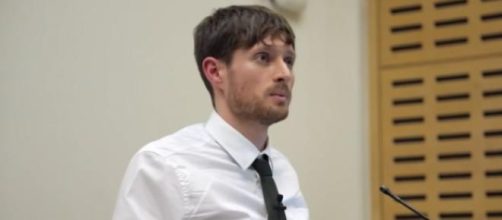In response to the experiment announcement, Dr. Carhart-Harris claimed they received a significant amount of student offers to take part in the study.
Unfortunately for the students, only "one or two students were recruited to the LSD study out of 20 participants, who were mostly professionals" as reported by the Daily Mirror. The participants have all used a psychedelic drug in the past and had a low potential to develop mental disorders consecutively to the experiment.
Carhart-Harris said to the Daily Mirror: "we'll try and work out how the drug works on the brain. There's a number of different potential applications - in psychiatry, in treating addiction and anxiety, and also depression. It's similar to ketamine, but with fewer side effects.
The young doctor brings a refreshing look to the scientific study of psychedelic effects on the brain.
He expresses himself in a clear way while lecturing about the psychedelics history and potential medical uses.
LSD was discovered in the 1930s by Albert Hoffman. Psychedelics may be translated as "mind manifester" ("psyche" being the mind and "delose" meaning to make clear or visible). Scientifics quickly discovered LSD could enable people to explore the unconscious mind. Many papers were written on the topic in the 1950s and 1960s including a referent work for Carhart-Harris named Realms of the Human Unconsciousness: Observations from LSD Research written by Czech psychiatrist, Stanislav Graf.
While LSD cured a large array of conditions such as alcoholism and anxiety from the 1950s onward, more and more people started using LSD as a recreational drug in the 1960s.
Because of the bad public image of the drug, partially caused by the Hippie movement, LSD was classified under Schedule I of the 1973 UK Misuse of Drugs Act regulating the psychedelics' use and supply.
It does not come as a surprise that psychedelics experimentations are not risk-free. Protocols, doses, and volunteers' selection need to be taken with a lot of caution. However, the psychedelics field is now a major scientific issue. Several British and American universities are extremely hopeful for the further discovery of the drugs medicinal properties.
Today, Carhart-Harris hopes to change the public opinion's view on psychedelics. He asserted to the Imperial College's newspaper: "I have a strong conviction that psychedelics will develop into therapeutics in the coming decades".

